Robert Baillie was a Church of Scotland minister who became famous as an author and a propagandist for the Covenanters.
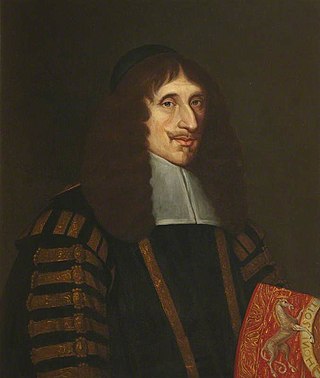
John Campbell, 1st Earl of Loudoun was a Scottish politician and Covenanter.

Alexander Henderson was a Scottish theologian, and an important ecclesiastical statesman of his period. He is considered the second founder of the Reformed Church in Scotland. He was one of the most eminent ministers of the Church of Scotland in the most important period of her history, namely, previous to the middle of the seventeenth century.
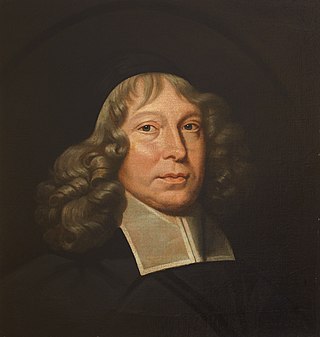
Samuel Rutherford was a Scottish Presbyterian pastor and theologian and one of the Scottish Commissioners to the Westminster Assembly.
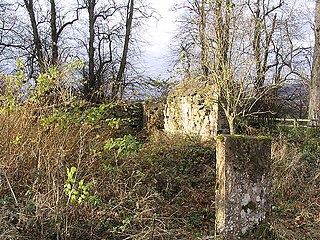
David Calderwood was a Church of Scotland minister and historian. Calderwood was banished for his nonconformity. He found a home in the Low Countries, where he wrote his great work, the Altare Damascenum. It was a serious attack on Anglican Episcopacy. Patiently and perseveringly Calderwood goes over the whole system, referencing the Bible, the Fathers, and the Canonists. Calderwood lived to see the principles for which he had suffered, and which he had defended, in complete ascendency. He was present at the Glasgow Assembly in 1638, and saw episcopacy and the high church liturgy swept away. He breathed his last at Jedburgh, a fugitive from his parish of Pencaitland; and they laid him in the churchyard of Crailing, where the first years of his ministry were spent.
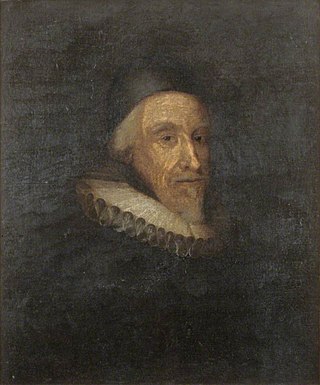
Andrew Cant (1584–1663) was a Presbyterian minister and leader of the Scottish Covenanters. About 1623 the people of Edinburgh called him to be their minister, but he was rejected by James I. Ten years later he was minister of Pitsligo in Aberdeenshire, a charge which he left in 1638 for that of Newbattle in Midlothian. In July of that year he went with other commissioners to Aberdeen in the vain attempt to induce the university and the presbytery of that city to subscribe the National Covenant, and in the following November sat in the general assembly at Glasgow which abolished episcopacy in Scotland. In 1638 Cant was minister of Pitsligo in Aberdeenshire. In 1640 he was chaplain to the Scottish army and then settled as minister in Aberdeen. Though a staunch Covenanter, he was a zealous Royalist, preaching before Charles I in Edinburgh, and stoutly advocating the restoration of the monarchy in the time of the Commonwealth. Cant's frequent and bitter verbal attacks on various members of his congregation led in 1661 to complaints laid before the magistrates, in consequence of which he resigned his charge.
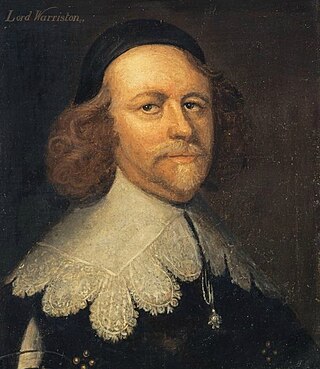
Archibald Johnston, Lord Wariston was a Scottish judge and statesman.

Robert Blair was a Scottish presbyterian minister who became a Westminster Divine and Moderator of the General Assembly of the Church of Scotland in 1646, after failing to emigrate to Boston in 1636. Born in Irvine in 1593, the sixth son of John Blair of Windyedge, a merchant-adventurer and cadet of Blair, and Beatrix Mure of the Rowallan family, he gained an MA at the University of Glasgow in 1612 and became regent there in 1615. When the episcopalian John Cameron was appointed Principal, Blair resigned and went to Ireland, to become minister of a Presbyterian congregation at Bangor, County Down. He was ordained for it by Robert Echlin, Bishop of Down and Connor, Blair was "very careful to inform... of what accusations had been laid against me of disaffection to the civil powers, whom he was the use of the English liturgy nor Episcopal government.... I declared my opinion fully to the Bishop at our first meeting... [who] said to me, 'I hear good of you, and will impose no conditions on you'". Echlin, however, turned against him. In September 1631, he was suspended from his ministry and on 4 May 1632 deposed. Though bent on emigrating to New England, the ship in which he and other ministers sailed was driven back by weather, a sign, Blair thought, that his services were still required at home. He dodged an order for his arrest by escaping to Scotland and was admitted to the Second Charge of Ayr in July 1638. After periods in Scotland and Ireland, he accompanied the Scottish army to England in 1640 and helped to negotiate the 1641 Peace of Ripon. In 1646, Blair was elected Moderator of General Assembly, then Chaplain-in-Ordinary to King Charles I. He was also on a committee endeavouring in 1648 to get Cromwell to establish "a uniformity of religion in England". He was summoned to London by Cromwell in 1654, but excused himself on grounds of ill health. On the establishment of episcopacy he was removed from his charges in September 1661, confined to Musselburgh, then to Kirkcaldy for three and a half years, and then to Meikle Couston, Aberdour, Fife, where he died on 27 August 1666 and was buried.
Robert Douglas (1594–1674) was the only minister of the Church of Scotland to be Moderator of the General Assembly five times.
David Lindsay was a Church of Scotland minister and prelate active in the seventeenth-century.

The 1639 and 1640 Bishops' Wars were the first of the conflicts known collectively as the 1639 to 1653 Wars of the Three Kingdoms, which took place in Scotland, England and Ireland. Others include the Irish Confederate Wars, the First and Second English Civil Wars, the Anglo-Scottish war (1650–1652), and the Cromwellian conquest of Ireland.

David Dickson (1583–1663) was a Church of Scotland minister and theologian.
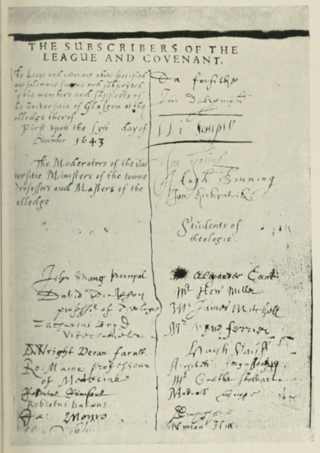
John Strang (1584–1654) was a Scottish minister and Principal of Glasgow University. He was a signator to the National Covenant of 1638.
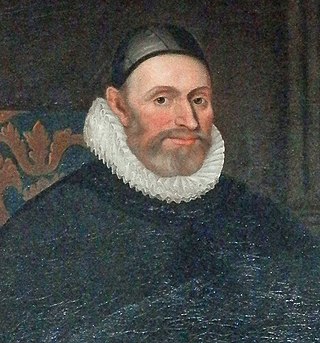
William Guild (1586–1657) was a Scottish minister, academic and theological writer.

James Fraser of Brea (1639–1699) was a Covenanter.

John Livingstone was a Scottish minister. He was the son of William Livingstone, minister of Kilsyth, and afterwards of Lanark, said to be a descendant of the fifth Lord Livingston. His mother was Agnes, daughter of Alexander Livingston, portioner, Falkirk, brother of the Laird of Belstane.
James Durham was the eldest son of John Durham of Easter Powrie, north of Dundee. He was educated at University of St Andrews, and betook himself to the life of a country gentleman. While visiting his mother-in-law in the parish of Abercorn, he came under profound religious impressions in consequence of a sermon by Melvill, minister of Queensferry. Joining in the Civil War, he was promoted captain, and seriously exhorted and led the devotions of his company; this being noticed by Professor Dickson, he was induced to prepare himself for the ministry, a resolution which was hastened by two narrow escapes on the battlefield. He graduated M.A.. He was licensed for the ministry by the Presbytery of Irvine 18 May 1647. He was admitted to the congregation of Blackfriars 2 December 1647. Durham was appointed chaplain to the King July 1650. He called 4 September 1651, with charge of West Quarter of the city. He endeavoured, without success, to effect a union between the two contending parties in the Church in 1652. He died of consumption, 25 June 1658.
John M'Clellan was a seventeenth century teacher and minister. Educated in Scotland he started work as a schoolmaster at Newtownards. He also began to preach there initially with the sanction of the church. He took part in an unsuccessful attempt to sail to America on board the Eagle Wing in 1636. After this he returned to Scotland where he became a minister where he served from 1638 until his death in 1650.

James Hannay was a Scottish clergyman who served as Dean of St Giles Cathedral. He is best remembered as the unfortunate clergyman struck on the head by a stool thrown by Jenny Geddes after reading from the English Book of Common Prayer.
James Bonar or Bonor was a Church of Scotland minister who served as Moderator of the General Assembly in 1644. He was a strong supporter of the Covenanters. He was a Resolutioner and member of the Moderate Party within the church.













